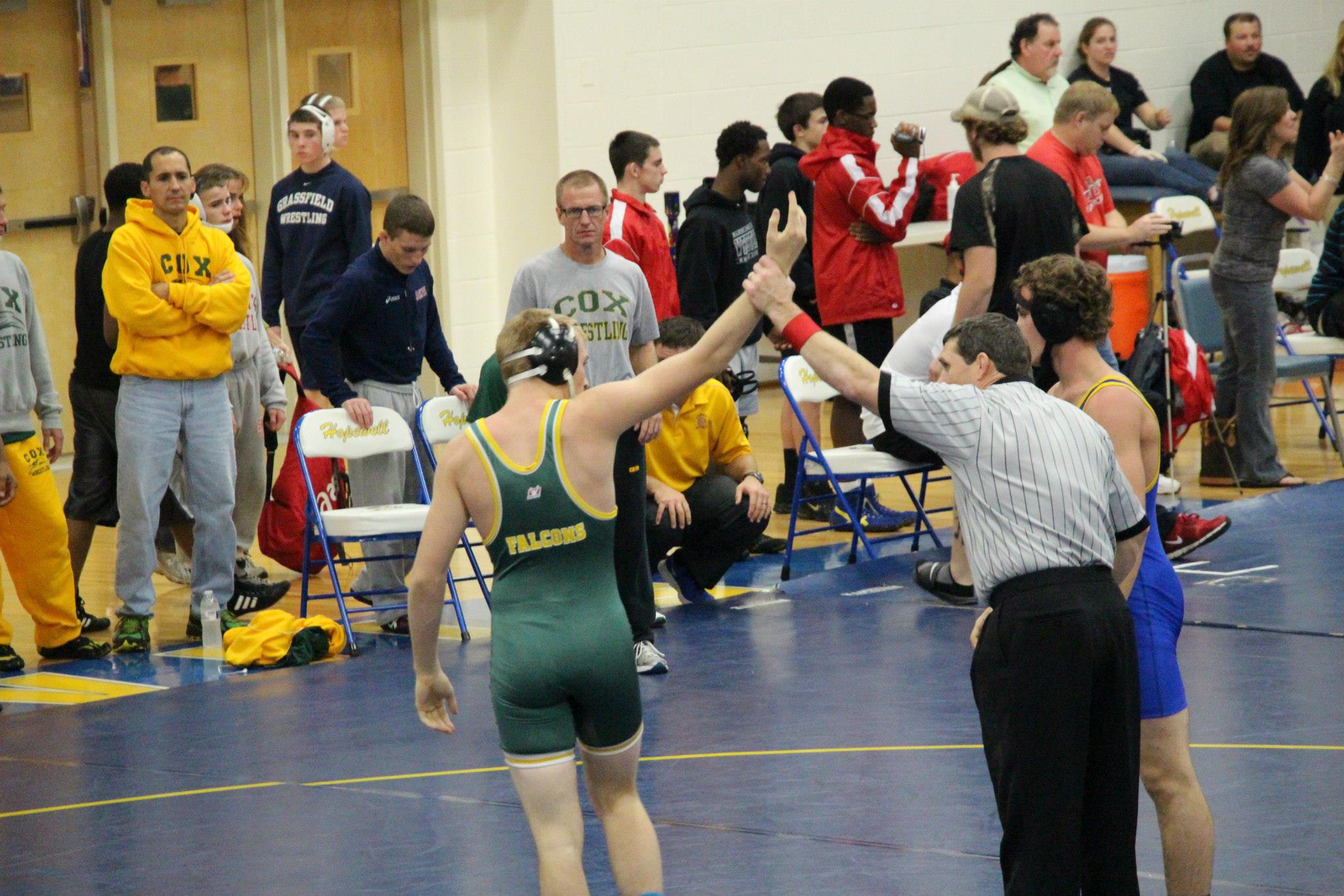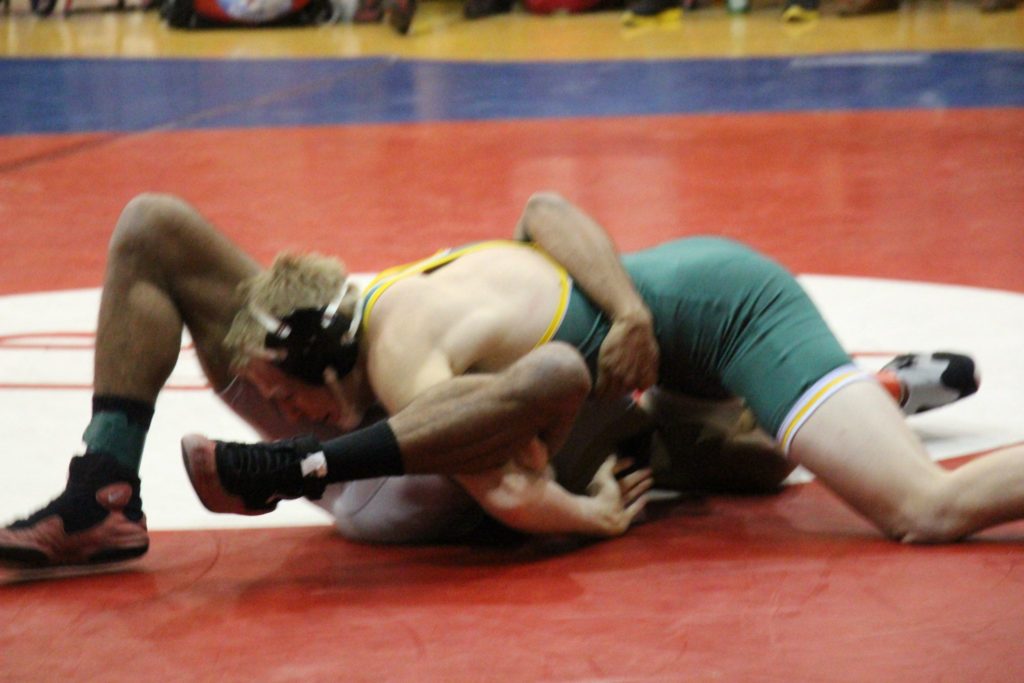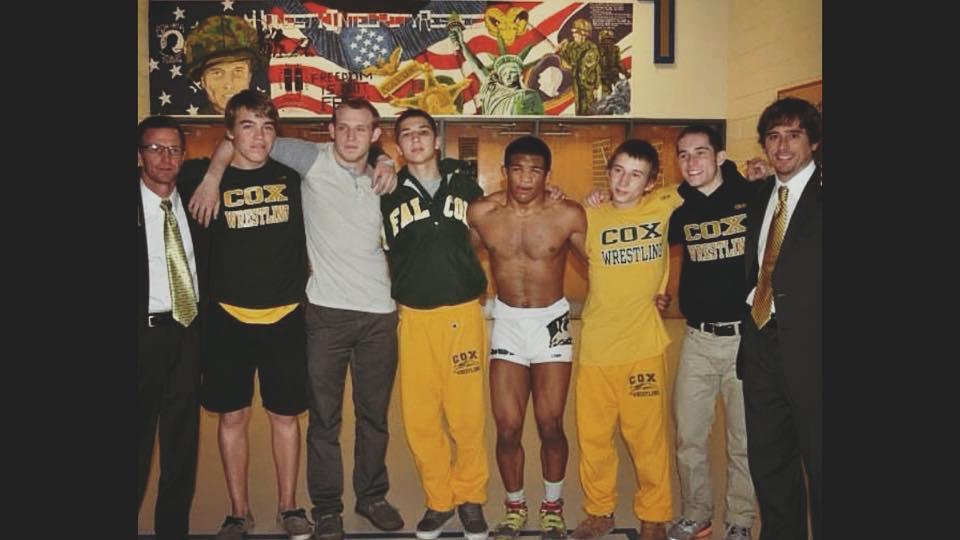Meet Openly Gay Wrestler Dylan Watson

By Dylan Watson
When people think of a wrestler, words such as “masculinity,” “strength,” and “willpower” come to mind. One word that typically doesn’t is “homosexuality.” Fearful of what their families, friends, and teammates will think of them, many gay athletes struggle with ever coming out.
I remember the first day I stepped into the wrestling room at Frank W. Cox High School as an elementary school student. Having no clue what I was doing, I felt vulnerable and confused, feelings I would come to know very well later on in my life. However, within a few practices I realized I loved the challenges that came with wrestling.
There is no other school sport in which it’s truly you versus one other person. Your teammates can cheer you on from the seats, but everything that goes on within the 42-inch mat is all up to you. Over the next few years, my love for wrestling grew exponentially, and eventually, before my freshman year of high school, I chose to quit every other sport to focus solely on it.

Dylan in action
During high school, I had some success on the mat, but truly struggled with a fight that none of my teammates could help me with: my sexuality. I was afraid of telling anyone because of the bullying I had seen other openly gay kids go through. During my freshman year, I chose to tell someone I thought was one of my closest friends, but this turned out to be a grave mistake. Within days, the whole school knew, and many reacted with disgust. I lost many of my friends, and I even had so-called teammates making comments during wrestling practice and purposely trying to hurt me while in the weight room. I was able to cope with the harassment from others for about two years before it all finally started to weigh down on me. I began to hate myself and tried every avenue to make myself straight, yet nothing worked. During my senior year, halfway through the season, I quit and spiraled into a very dark place, something I’ve spoken to only a few about. Later that week, I came home from school one day and sat down to write a letter to my family, apologizing for my sexuality, and explaining why I had chosen to commit suicide. Right then, my only friend at school, Becky, called me, and we talked for hours about the negative effects my decision would have and how everything would get better. I realized that to be happy, I had to accept who I was, and I did just that.
After graduating high school, I joined the U.S. Army National Guard and formed some of the best relationships I’d ever had. At first, I was afraid I would once again be ostracized, but this was not the case. The men in my unit accepted me for who I was and couldn’t care less about my sexuality. I realized that the reason why so many are cruel at a young age is because of their lack of knowledge.
After returning home from a 9-month deployment, I attended Hampden-Sydney College, an all-male private college in Farmville, VA, and was once again faced with the possibility of being ostracized. However, this time, I chose to lean heavily on my wrestling teammates, who told me they didn’t care about my sexuality because we were teammates and they had my back no matter what. Even though I chose to transfer to NYU, the wrestlers at HSC showed me that there’s nothing wrong with being an openly gay wrestler. As I continue my academic and wrestler career at NYU, I have the pleasure of being part of a LGBTQ-friendly college campus. NYU has a wide range of clubs for members of the LGBTQ community, and strict policies against discrimination. Also, NYU has been at the forefront of promoting diversity, educating youth about the LGBTQ community, and fighting to end stigma about us.

Dylan (third from left) with teammates
Personally, one of the problems I’ve faced as a gay athlete is having to deal with the constant small jabs thrown at the LGBTQ community. Teammates might say, “If I ever had a gay kid, I’d kick him out,” or comments along those lines. It starts to make an athlete wonder, “What will they say when I tell them I’m gay? Will they try to kick me off the team?” Also, you have coaches that hear these comments and say nothing or even repeat them, effectively telling their athletes that being gay is wrong. For some reason, this notion has prevailed in society that a gay man is somehow less of a man, weaker in everyone’s mind, and unworthy of being on any athletic team. Yet, Mike Pucillo, who wrestled at Hofstra and OSU, was a three time all-American, a NCAA runner up in 2009, and won a national championship in 2008. Despite all this, some would consider him less of a man because of his sexuality. I wonder how many other closeted wrestlers there are that have won state titles, division titles, and even national championships.
In order to combat negativity towards the LGBTQ community, we need inclusive policies adopted across college athletics. Once many of the larger schools decide to adopt these all-inclusive policies, a clear message will be able to be sent to all athletes that sexuality doesn’t define all of who you are, nor should it interfere with how you view someone. I think many times people struggling with their sexuality become consumed with staying in the closet, and less focused on their goals in sports and in the classroom. In wrestling, homosexuality is still stigmatized, only recently being brought into the open as athletes like Mike share their stories. Once people see that openly gay wrestlers are able to compete at the highest levels of collegiate and international competitions, negative connotations among wrestlers towards the LGBTQ community will slowly start to fade away.
For any wrestlers currently struggling with your sexuality, live by the phrase “control what you can.” Don’t let someone tell you what you can or can’t do because of your sexuality. Whether it be in the classroom, on a football field, or on a wrestling mat, break down the barriers built over the years by ignorant people. If friends chose to no longer associate with you because of your sexuality, don’t look back— those are people that would’ve dragged you down anyways. We have a saying in the wrestling community: “It takes a village to raise a wrestler.” The same mentality can be put towards building your own relationships with others. Make sure you surround yourself with friends and family that support your goals in every aspect of your life. Remember that no matter how depressed you may be, it always gets better. Don’t be afraid to express yourself, lean on those closest to you for support, and help others going through the same struggles.